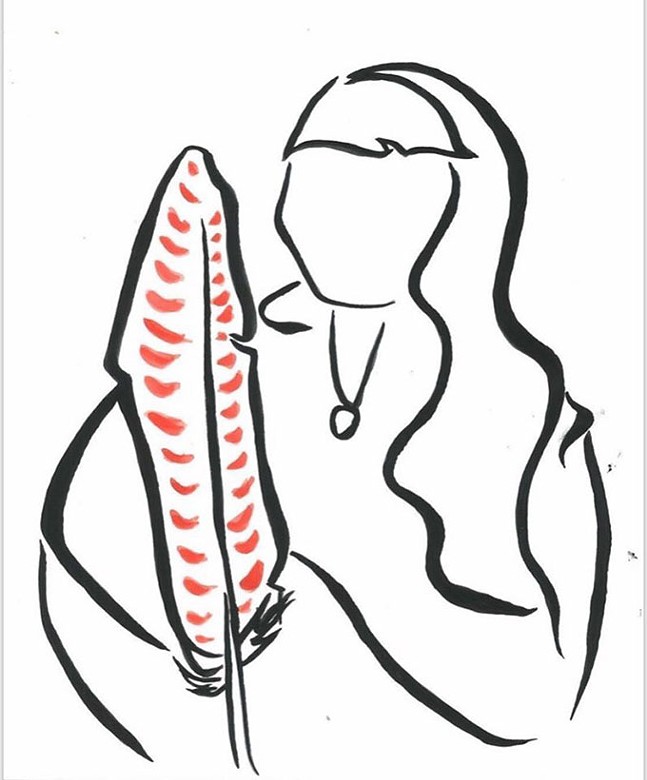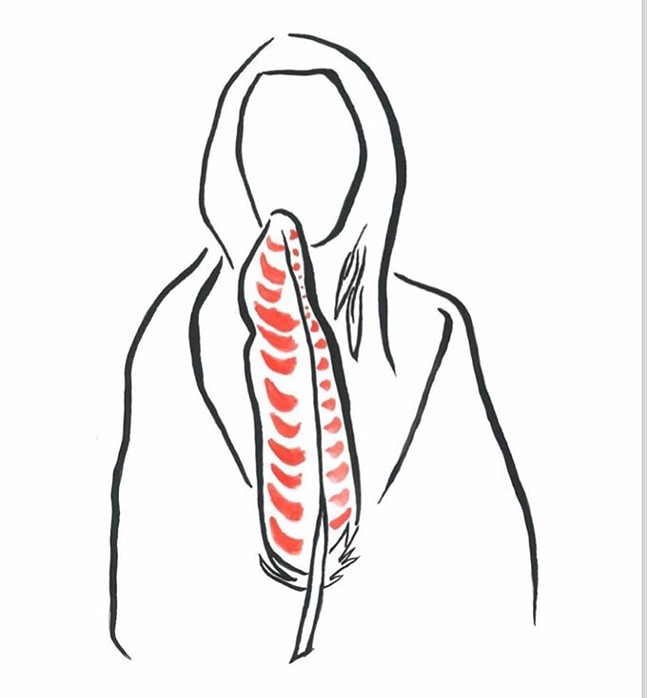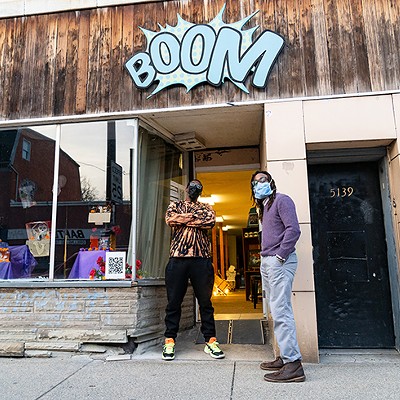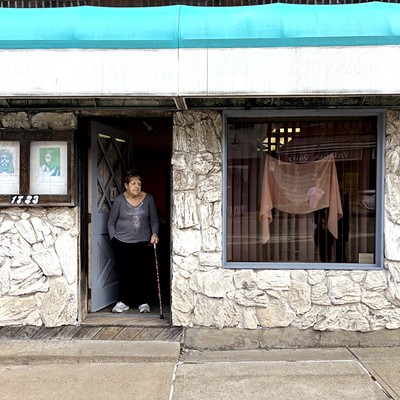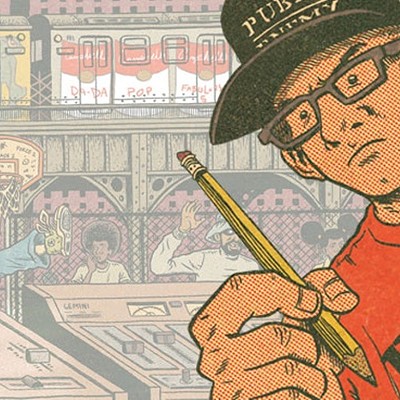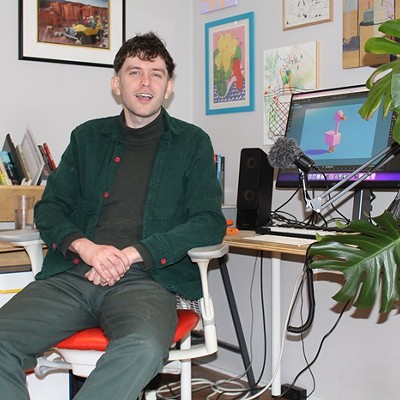Local artist Kara Bialecki says she has always been interested in Native American culture, but it wasn’t until last spring that she learned a shocking statistic. While attending an event at the Westmoreland Museum of American Art, she met a Native American performer who informed her that one in four indigenous women and girls in the U.S. have gone missing.
“I was like, ‘This is crazy, this cannot possibly be,’” says Bialecki, who manages the Alchemy Dry Cut Lounge in Lawrenceville and produces art under the name L’instant Boutique. “And I looked it up immediately and found that it is very true. My heart was breaking.”
To draw more attention to the alarming rate of missing and murdered indigenous women and girls (MMIWG), she created a series of watercolor paintings for Spirit Of Our Sisters, a solo exhibition opening on Sat., Jan. 18 and running through February at Commonplace Coffee in the North Side.
Though Bialecki has gotten involved in social issues before, Spirit Of Our Sisters is the first time she has ever used her art to advocate for a cause, giving her an opportunity to share statistical information about MMIWG on the postcards and social media posts she uses to promote the event.
“Since I have been doing this project, I realized just bringing it up in conversation and sharing information through social media has really brought awareness to people who knew nothing or little about this issue,” she says.
Each Spirit Of Our Sisters painting is an artistic reinterpretation of photographs from a similarly titled project on Instagram and Tumblr, which featured 29 images of people holding eagle feathers to represent MMIWG in Canada. As part of the show, Bialecki will acknowledge the project by hanging the original photographs next to their corresponding paintings.
Instead of painting detailed portraits of the photographs, Bialecki decided that using simple, watercolor linework looked less painterly and would draw more attention to the issue as opposed to her process. That the figures are faceless and featureless communicate how MMIWG are either overlooked or forgotten by society.
The show will also serve as a fundraiser, with a portion of proceeds from art sales and an opening night after-party at Pittsburgh Winery going to the Sovereign Bodies Institute, a database created to log cases of missing and murdered indigenous women and girls in the U.S. and Canada going back to 1900.
The database highlights what many Native American activists see as a failure by law enforcement and the federal government to protect indigenous women and girls in North America. Bialecki cites various disturbing statistics she discovered through research, including a study from the federal National Crime Information Center showing that 5,712 American Indian and Alaska Native women and girls were reported missing in 2016 alone, but only 116 of those cases were logged with the Department of Justice.
A 2018 report published by The Urban Indian Health Institute went even further by identifying 506 documented cases of MMIWG in 71 cities across the U.S. since 2010, plus another 153 cases not recorded by law enforcement.
Of those cases, the report concluded that 95% were never covered by the media.
Bialecki attributes the lack of attention to the issue to a variety of factors, but sees deep-seated racism as the primary cause.
“I think the colonial mindset that has been against indigenous peoples since the founding of this country hasn’t gone away in areas where there’s a high Native American population,” she says.
She also blames the system, describing how tribal governments on reservations lack the power to prosecute non-Native people. This is especially disturbing considering that the National Institute of Justice estimated that 97% of indigenous women and girls who experienced violence were victimized by non-Native perpetrators.
Despite having no Native American lineage, Bialecki feels compelled to help tribal communities, especially in Pennsylvania. While most indigenous people in the U.S. are located out west in states like Arizona and Oklahoma, as well as Alaska, a 2010 U.S. Census Bureau report ranked Philadelphia as having one of the highest numbers of Native American residents in the country.
“It is a big issue here also,” says Bialecki. “We don’t necessarily hear about it or see it, but it’s definitely going on.”
Commonplace Coffee will also host a community art project that welcomes patrons to make their own feathers out of denim scraps or macramé (they have yet to decide on the materials), which will then be displayed in the coffee house window.
Bialecki plans to keep using her artwork to raise awareness of social justice issues, including a future project that will address the current immigration crisis and support local efforts to deliver supplies to people detained at the Southern U.S. border.
But for now, she wants Spirit Of Our Sisters to inspire people to do their own research.
“I am hoping that after being exposed to this tragic epidemic people will educate themselves and look into the details further,” she says.

